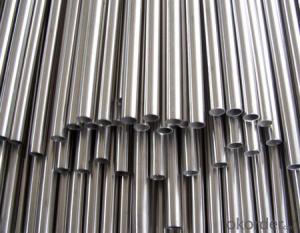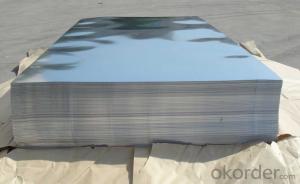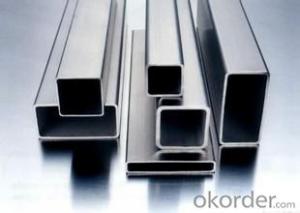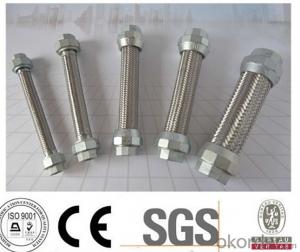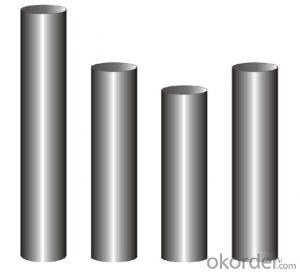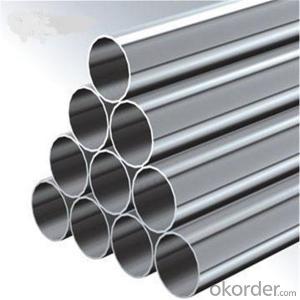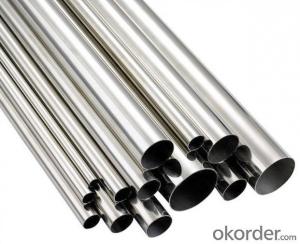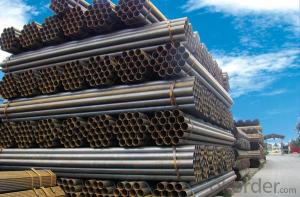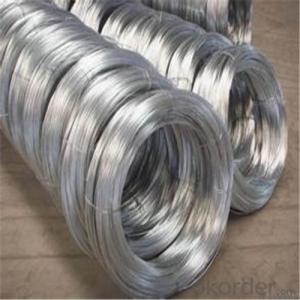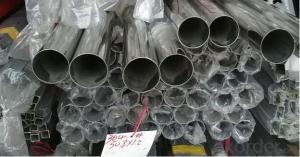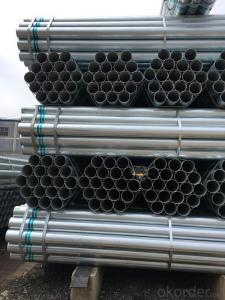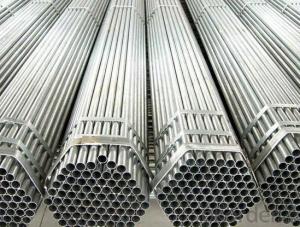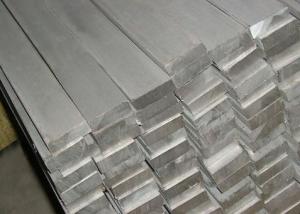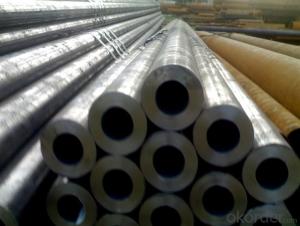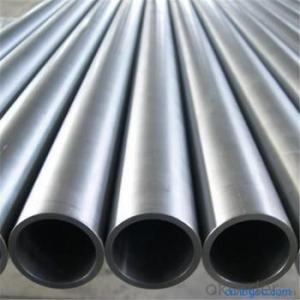Boiler Heat Exchange Stainless Steel Pipe
- Loading Port:
- Tianjin
- Payment Terms:
- TT OR LC
- Min Order Qty:
- 100 m.t.
- Supply Capability:
- 3000 m.t./month
OKorder Service Pledge
OKorder Financial Service
You Might Also Like
Product Description:
1、Structure of Boiler Heat Exchange Stainless Steel Pipe 31803 ASTM A213 Description:
Boiler Heat Exchange stainless steel pipe is often used in the heating system. Heating system, or those stored energy (such as solar energy) in the form of heat, need to be built with the material that can withstand temperatures up to 550 degrees Celsius. High chromium molybdenum welded steel pipe can work in the extreme, which maintain as the ideal material for the construction of power station.
2、Main Features of Boiler Heat Exchange Stainless Steel Pipe 31803 ASTM A213:
• High manufacturing accuracy
• High strength
• Small inertia resistance
• Strong heat dissipation ability
• Good visual effect
•Reasonable price
3、Boiler Heat Exchange Stainless Steel Pipe 31803 ASTM A213 Images:
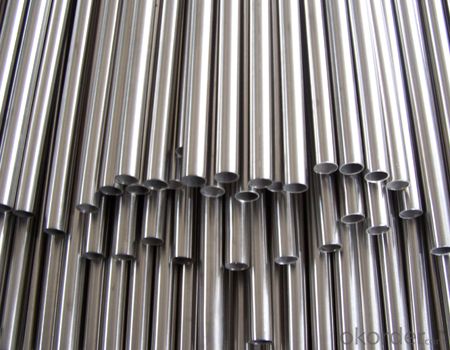
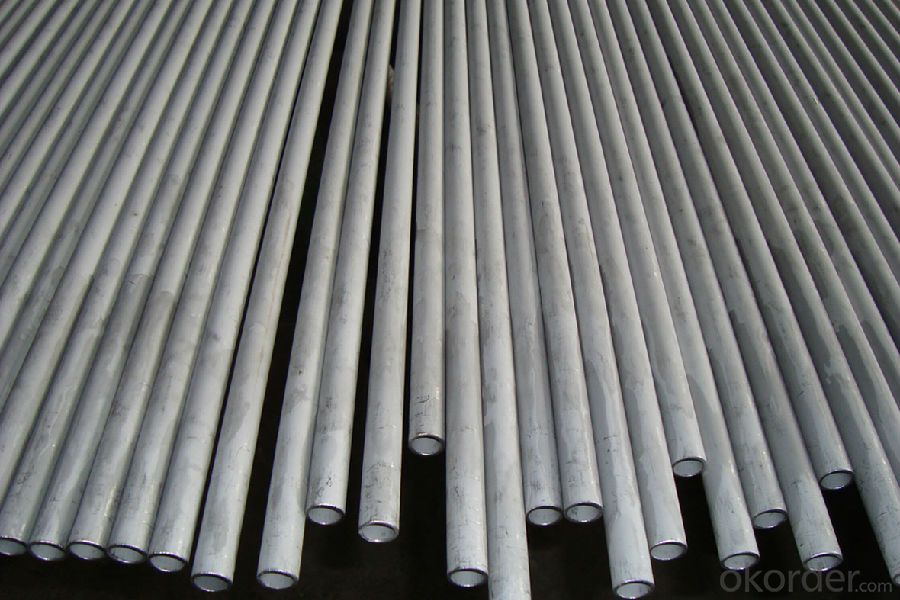
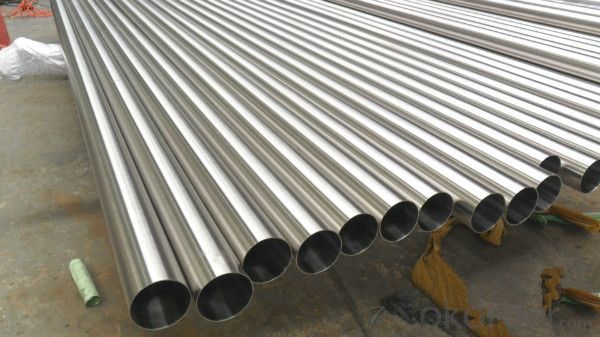
4、Boiler Heat Exchange Stainless Steel Pipe 31803 ASTM A213 Specification:
1)Commodity: heat exchanger pipe
2))Material: 304,316L,304L,316,321,310S,etc
3)Thickness:0.5-100mm
4)Length: 1-14m
| Material Grade | 304,304L,316 ,316L,321,310S,2205,904and so on. |
| Standard | ASTM A312, A554, A249, A269 and A270,ect |
| DIN 17456-85 , DIN 17458-85, DIN 17459-92,ect | |
| JIS G3446-1994, JIS G3448-1997, JIS G3459-1997, JIS G3463-1994,ect | |
| GB13296-1991, GB14975-2002, GB14976-2002,ect | |
| Outer Diameter | 13.7-2020mm |
| Thickness | 0.5-50mm |
| Length | 1m -12m or as customers' request |
| Polish | 180G, 320G, 400G Satin / Hairline |
| 400G, 500G, 600G or 800G Mirror finish | |
| Test | eddy current inspection, ultrasonic inspection, X-ray inspection, real-time imaging, hydrostatic test, spectral analysis, intergranular corrosion, water pressure test, and mechanical property testing facilities. |
| Payment | 1) by L/C at sight, |
| 2) 30% deposit, 70% balance before Shipping. | |
| Delivery time | A.7 days if this goods is stock goods. |
| B.25 days if this goods will be produced after order | |
| Validity | Valid time is 3 days for price usually. |
| Payment terms | FOB QINGDAO |
| MOQ | 1 ton |
| Capacity | 1000 ton per month |
| Certificate | ISO, SGS, and third part inspection |
| Applications | the products are widely used in chemical industry, condenser pipe, heat exchanger, petroleum, shipping military, environment protection, high temperature resistant, low temperature resistant, corrosion resistant and so on. |
| packing details | 1) Wooden-box Package. 2) The Wooden Frame Packing. 3) Intertexture Cloth Packaging with the Iron Sheet Bonding and the Two Terminals Covered With Plastic Dome. |
5、FAQ of Boiler Heat Exchange Stainless Steel Pipe 31803 ASTM A213:
①How is the quality of your products?
Our products are manufactured strictly according to national and internaional standard, and we take a test on every pipe before delivered out. If you want see our quality certifications and all kinds of testing report, please just ask us for it.
Guaranteed: If products’ quality don’t accord to discription as we give or the promise before you place order, we promise 100% refund.
②How about price?
Yes, we are factory and be able to give you lowest price below market one, and we have a policy that “ for saving time and absolutely honest business attitude, we quote as lowest as possible for any customer, and discount can be given according to quantity”,if you like bargain and factory price is not low enough as you think, just don’t waste your time.Please trust the quotation we would give you, it is professional one.
③Why should you chose us?
Chose happens because of quality, then price, We can give you both.Additionally, we can also offer professional products inquiry, products knowledge train(for agents), smooth goods delivery, exellent customer solution proposals.Our service formula: good quality+good price+good service=customer’s trust
SGS test is available, customer inspection before shipping is welcome, third party inspection is no problem.
Any question, pls feel free to contact us !
- Q: What are the disadvantages of using stainless steel pipes?
- Some potential disadvantages of using stainless steel pipes include their higher cost compared to other materials, their susceptibility to corrosion under certain conditions, and the difficulty of welding and shaping them. Additionally, stainless steel pipes may be prone to scratching or denting, and they can be less resistant to certain chemicals or extreme temperatures compared to other materials.
- Q: Can stainless steel pipes be used in power plants?
- Yes, stainless steel pipes can be used in power plants. Stainless steel is highly resistant to corrosion, making it suitable for various applications in power plants where there may be exposure to high temperatures, pressures, and corrosive environments. Stainless steel pipes are commonly used for transporting fluids such as water, steam, and chemicals in power plants. They are also used in various components such as heat exchangers, boilers, condensers, and turbines. The durability, strength, and resistance to corrosion of stainless steel make it a reliable choice for power plant applications.
- Q: Where is the difference between seamless steel pipe and welded pipe?
- The steel tube is a hollow steel strip, used as pipe conveying fluid, such as oil, gas, water, gas, steam, in addition, the bending and torsional strength of the same, the weight is light, so it is widely used in the manufacture of machinery parts and engineering structures. It is also used to produce all kinds of conventional weapons, guns, shells and so on.
- Q: Can stainless steel pipes be used for underground sprinkler systems?
- Yes, stainless steel pipes can be used for underground sprinkler systems. Stainless steel is known for its durability, resistance to corrosion, and ability to withstand high pressure and temperature. These qualities make it an excellent choice for underground applications, where the pipes are exposed to moisture, soil, and other environmental factors. Additionally, stainless steel pipes are non-reactive, meaning they will not contaminate the water supply or affect the quality of the water being used for irrigation. However, it is important to ensure that the stainless steel pipes are properly installed, with appropriate fittings and connections, to ensure a reliable and efficient sprinkler system.
- Q: Can stainless steel pipes be bent?
- Indeed, it is possible to bend stainless steel pipes. Stainless steel, being an incredibly versatile material, possesses remarkable strength and ductility, enabling it to undergo bending without any risk of breakage or cracking. To achieve the desired outcome, the bending process employs a variety of techniques, including cold bending, induction bending, or hot bending, depending on the pipe's thickness and the desired outcome. With the ability to be bent to different angles and shapes, stainless steel pipes find themselves well-suited for a broad range of applications in construction, plumbing, and the automotive industry. Nonetheless, it is vital to emphasize that professionals or specialized equipment must be employed to carry out the bending process, ensuring the stainless steel pipes' structural integrity and overall quality.
- Q: What is the difference between 304LN and 316LN stainless steel pipes?
- The main difference between 304LN and 316LN stainless steel pipes lies in their chemical composition and corrosion resistance properties. 304LN stainless steel pipes contain a higher percentage of chromium and nickel, making them more resistant to corrosion in general applications. On the other hand, 316LN stainless steel pipes have a higher content of molybdenum, which enhances their resistance to pitting and crevice corrosion, especially in chloride environments. Therefore, 316LN stainless steel pipes are often preferred in more corrosive and aggressive environments, such as marine or coastal applications, while 304LN stainless steel pipes are suitable for regular industrial and commercial use.
- Q: What is the difference between Type 304H and Type 316H stainless steel pipes?
- Both Type 304H and Type 316H stainless steel pipes are high carbon versions of their respective stainless steel grades, but they have some distinct differences. To begin with, Type 304H stainless steel pipe is classified as an austenitic stainless steel with 18-20% chromium and 8-10.5% nickel. It boasts a maximum carbon content of 0.04-0.10%, which contributes to its improved strength at high temperatures and resistance against sensitization. Sensitization occurs when stainless steel is exposed to elevated temperatures, leading to corrosion along the grain boundaries. Consequently, Type 304H is a suitable choice for applications in the chemical processing industry that involve high temperatures. On the contrary, Type 316H stainless steel pipe is also an austenitic stainless steel but contains higher concentrations of chromium (16-18%), nickel (10-14%), and molybdenum (2-3%). The inclusion of molybdenum significantly enhances the corrosion resistance of Type 316H, particularly in chloride-rich environments. Thus, Type 316H is well-suited for applications that demand exceptional resistance to corrosion, such as marine environments or exposure to acidic or alkaline solutions. To summarize, the primary distinction between Type 304H and Type 316H stainless steel pipes lies in their chemical compositions and the resulting properties. Type 304H offers improved strength at high temperatures and resistance against sensitization, whereas Type 316H provides superior corrosion resistance, particularly in chloride-rich environments. The selection between the two depends on specific application requirements, including temperature, corrosion resistance, and environmental conditions.
- Q: Where is the difference between seamless steel pipe and welded pipe?
- Seamless steel tube: seamless steel pipe is made of steel ingot or solid tube blank through piercing, then made by hot rolling, cold rolling or cold casting. Specifications for seamless steel tubes are expressed in millimeters of outer diameter * wall thickness. Seamless steel pipe, hot-rolled and cold-rolled (DIAL) seamless steel pipe two categories.Hot rolled seamless steel tubes are divided into ordinary steel tubes, low and medium pressure boiler tubes, high pressure boiler tubes, alloy steel tubes, stainless steel pipes, oil cracking pipes, geological steel pipes and other steel pipes, etc..
- Q: What are the limitations of using stainless steel pipes?
- The utilization of stainless steel pipes is associated with several limitations. To begin with, stainless steel pipes are inclined to be pricier in comparison to materials like PVC or copper. This aspect can render them less viable for projects with financial constraints. Moreover, the installation of stainless steel pipes can be more challenging and necessitate the use of specialized tools and equipment. Consequently, this can lead to an increase in both the overall installation time and cost. Another constraint is that stainless steel pipes are unsuitable for the transportation of certain corrosive chemicals or gases. There is a possibility of a chemical reaction occurring with certain substances, resulting in corrosion and potential harm to the pipes. In such scenarios, alternative materials such as plastic or lined pipes may be more suitable. Additionally, stainless steel pipes may possess limitations in terms of their resistance to temperature and pressure. Although they can withstand relatively high temperatures and pressures, extreme conditions may require the utilization of more robust materials. Furthermore, stainless steel pipes exhibit lower thermal conductivity compared to other materials, implying that they are not as efficient in transferring heat. This can be a limitation in certain heating or cooling applications that require rapid heat transfer. Lastly, stainless steel pipes are susceptible to expansion and contraction with changes in temperature. Consequently, the use of expansion joints or other measures may be necessary to accommodate these movements and avoid potential damage. In conclusion, although stainless steel pipes offer numerous advantages such as durability and resistance to corrosion, it is crucial to carefully consider their limitations before selecting them for a specific project.
- Q: Are stainless steel pipes suitable for food processing industries?
- Yes, stainless steel pipes are highly suitable for food processing industries. Stainless steel is a preferred material in these industries due to its excellent corrosion resistance, durability, and hygiene properties. Stainless steel pipes do not react with food or alter its taste, and they are resistant to staining, rusting, and chemical damage. This makes them ideal for transporting various food products, including liquids, gases, and solids. Additionally, stainless steel pipes are easy to clean and maintain, reducing the risk of contamination and ensuring food safety.
Send your message to us
Boiler Heat Exchange Stainless Steel Pipe
- Loading Port:
- Tianjin
- Payment Terms:
- TT OR LC
- Min Order Qty:
- 100 m.t.
- Supply Capability:
- 3000 m.t./month
OKorder Service Pledge
OKorder Financial Service
Similar products
Hot products
Hot Searches
Related keywords
